Granol is a Swiss family owned business with around 100 employees. All production takes place in Switzerland – with a strong commitment to quality, continuity, and sustainable entrepreneurship. For 70 years, Granol has been developing dry building materials for facades, ceilings, floors, and walls. Innovation, practical know-how, and a strong instinct for relevant industry trends are part of its DNA.
No surprise, that Granol connected with Oxara early on – and five years later became the official production partner for the cement-free binder Oulesse®.
ETH Spin-off and Swiss heritage company join forces
A visionary start – with a few bumps along the way
The story began with a bold vision: Around five years ago, Oxara approached Granol with an ambitious idea – cement-free construction materials made from industrial waste. The volume? 100,000 tons per year. For Granol executive Manuel Sieger, it was an intriguing proposition: “Bring it over – then we’ll see.”
At the time, CO₂ reduction was still in its infancy as an industry topic. Cement alternatives were visionary, yes – but still far from mainstream. Then, in 2024, the collaboration gained new momentum. Martin Bodmer joined Oxara – a familiar name to Manuel Sieger from previous professional encounters. The relationship was reactivated, trust was there – and suddenly things moved fast. As often happens in innovation: nothing for a long time, and then everything at once.
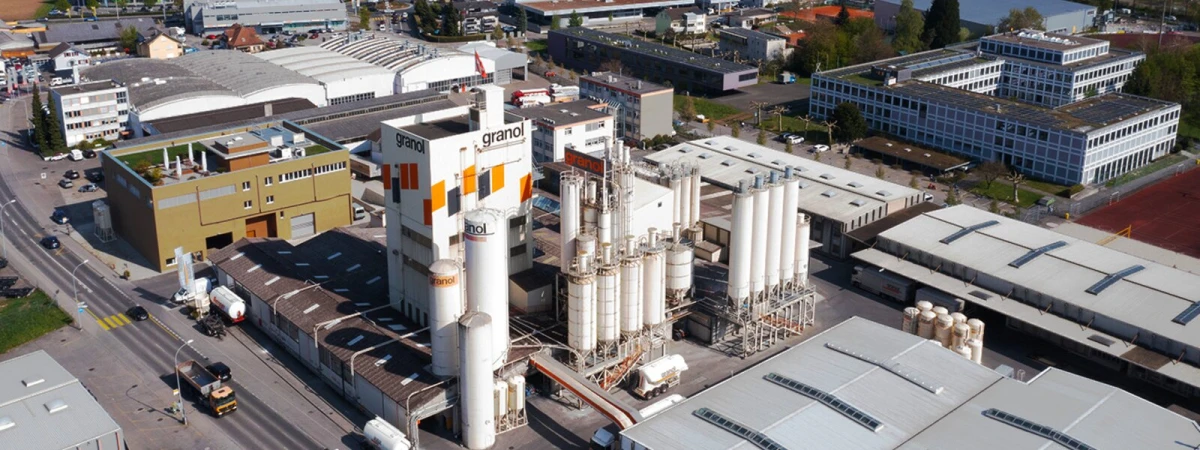 © Granol
© Granol Granol production site
Shared goals, different perspectives
From the outset, it wasn’t just the idea that mattered to Granol - but its practical feasibility. Oxara brought innovation drive; Granol brought production expertise. Today, Granol manufactures Oulesse® and manages raw material quality control - all in Switzerland.
The partnership also supports Granol’s diversification strategy. In a fluctuating construction market, it pays not to rely solely on one segment. At the same time, Sieger was convinced by the technology itself: “Cement-free products - that’s the future. And we see opportunities to use this in our own formulations as well.”
Integration hurdles - and key learnings
Integrating the new material into existing production lines required careful planning. Processes had to be adjusted, cleaning protocols introduced, and compatibility assessed. “We were lucky: our workflows were largely compatible with the Oxara material - no major modifications were necessary,” says Sieger.
Demand grew faster than expected - quickly pushing the originally planned production capacity to its limits. What makes the collaboration work? A pragmatic, solution-focused mindset on both sides.
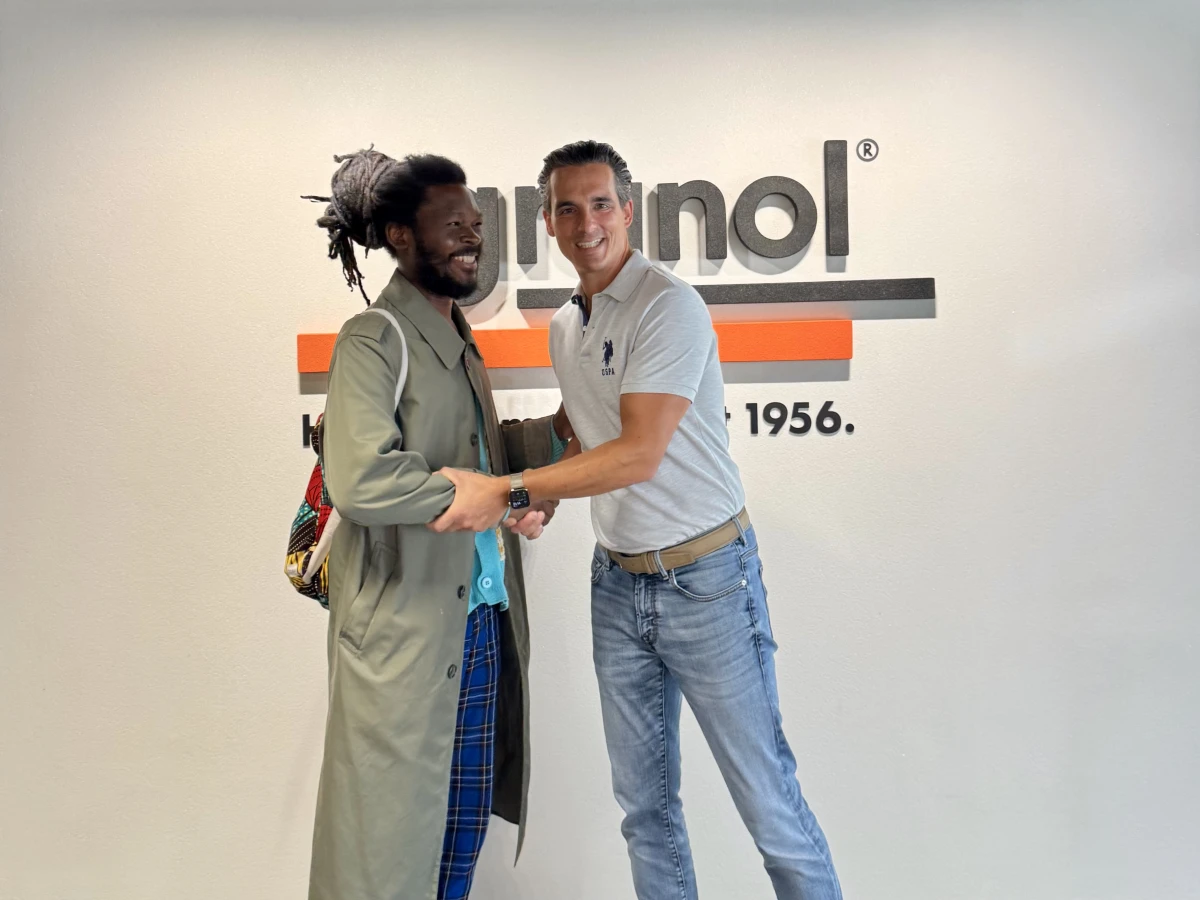
Gnanli Landrou & Manuel Sieger
Sustainability as a strategic pillar
For Granol, Oulesse® was a logical next step. Their own products already contain less cement than conventional concrete - but CO₂ taxes (currently CHF 40-45 per tonne) still have an impact. Reducing cement content with Oulesse® is therefore not only environmentally relevant, but also economically compelling.
Granol is already investing in CO₂ reduction: pellet heating and a solar installation now cover roughly one-third of production energy. But Oulesse® is the first product to enable true circularity: “We’re bringing demolition waste back into the production cycle - something we couldn’t do with our existing products.”
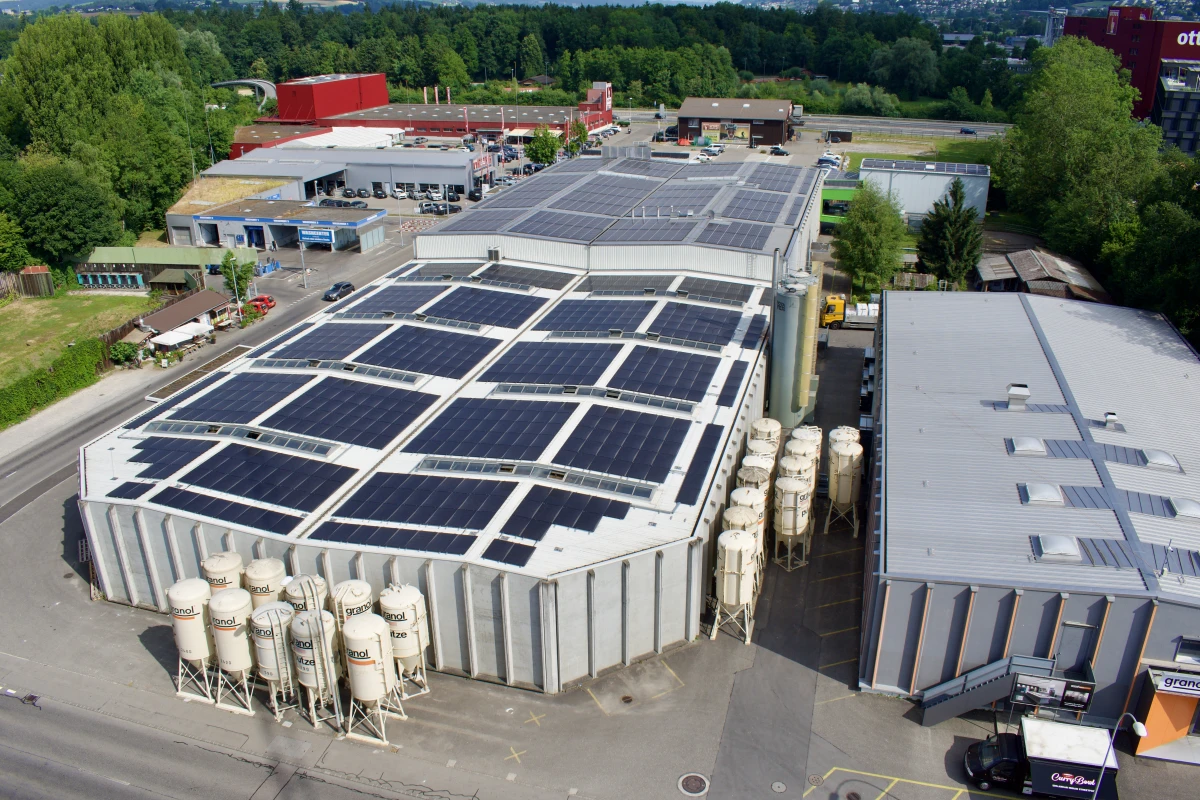
Granol's solar installation
Waste to value – entering real circularity
What excites Sieger most is the circular economy potential: “Until now, we were dependent on virgin raw materials. With Oulesse®, we can finally reintegrate demolition waste into production in a meaningful way.” A real added value - not just for Granol, but for the entire industry.
The long-term vision is much larger: a nationwide rollout of cement-free materials, produced in three shifts, supporting jobs and contributing to a more sustainable construction sector.
For now, the focus is on stabilising production processes and ensuring consistent quality. Only then will it be time to expand into additional applications - ideally starting with less demanding product lines. “Eventually, we could refine our own products with Oulesse® - reducing cement without compromising compressive strength,” Sieger notes.
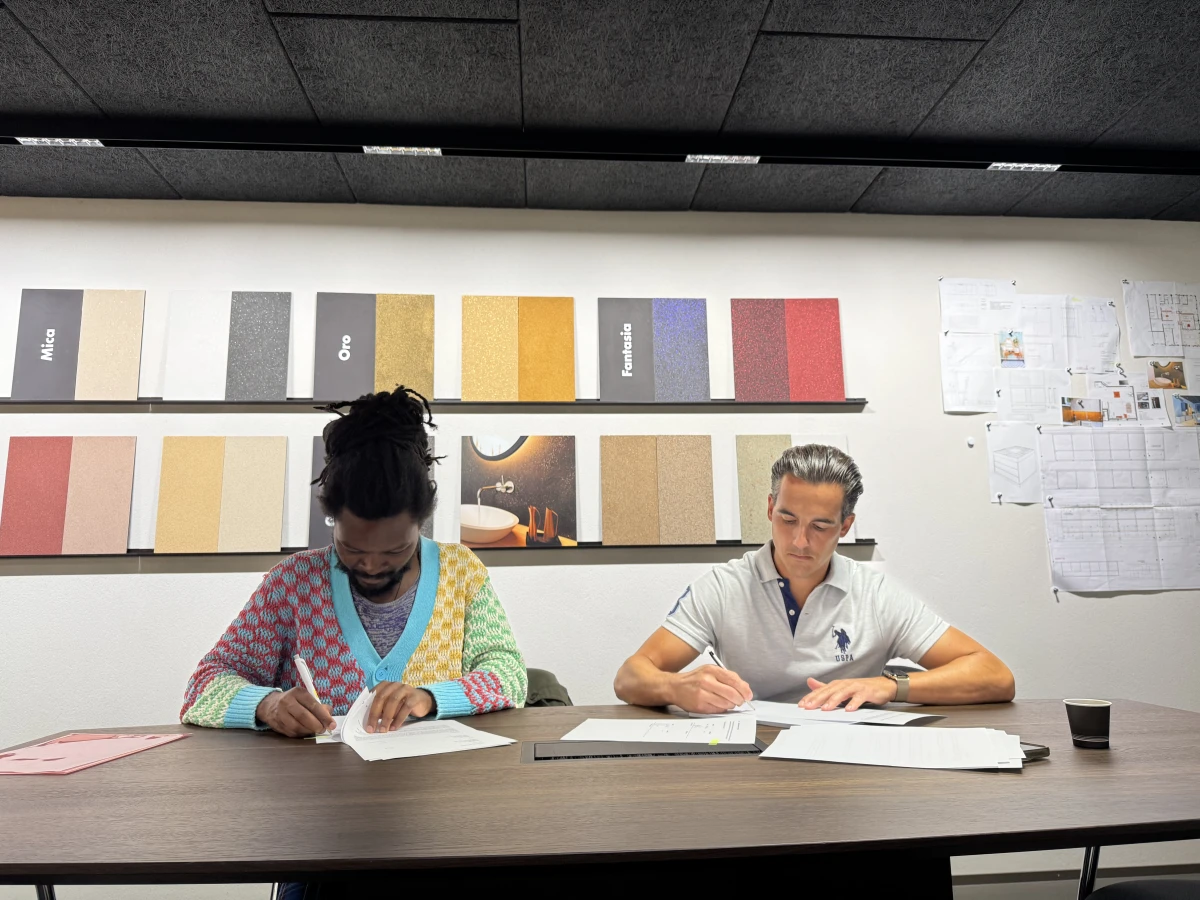
A personal highlight
For Sieger, one thing is clear: the industry is changing. And anyone wanting to lead must remain open - to new materials, new processes, and new partnerships.
Teaming up with Oxara’s binder technology is, for Granol, a forward-looking decision - not only to secure capacity utilisation, but also because it holds potential for their own product portfolio. “I was fascinated by the idea five years ago - even though we weren’t ready back then. Today, it all makes sense.”
And then there was that one moment: “When the first truck carrying Oxara material left our site - that was a real highlight,” Sieger recalls. Five years after the first conversation. A slow start, then a rapid rollout. Classic innovation.
What remains is not just another step in the decarbonisation of construction - but a story about trust, long-term thinking, and the power of human connection.
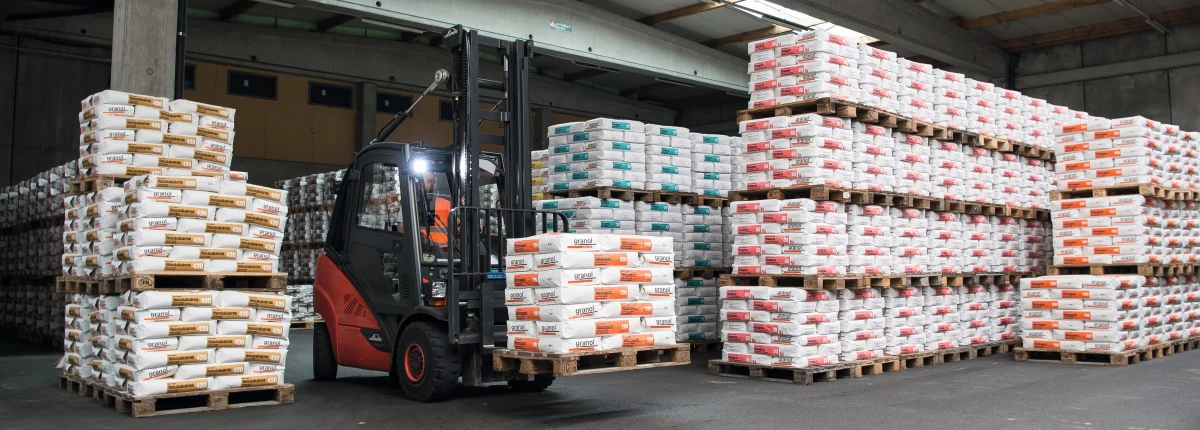 © Granol
© Granol Want to build something together?
Let’s talk – it starts with a message.